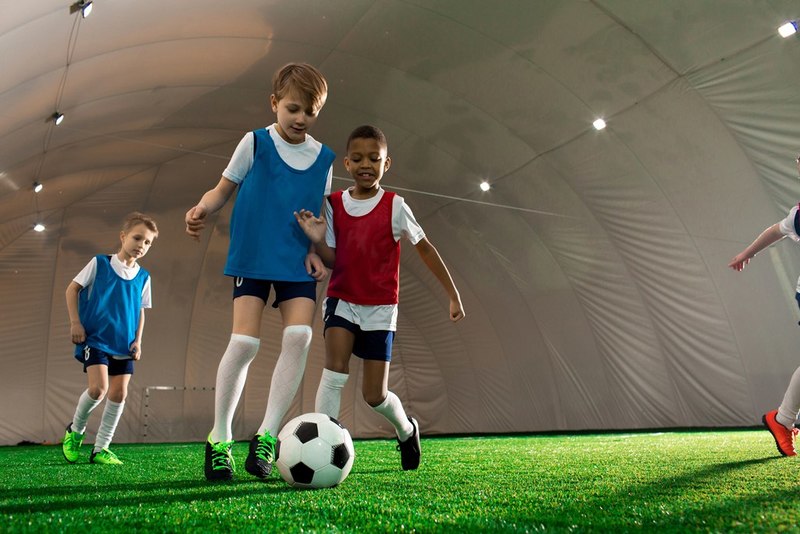Two Schools, ACG School Jakarta and the Australian Independent School, offer their take on the importance of extra-curricular activities.

Extra-curricular, or co-curricular activities are a part of education. In addition to providing students the opportunity to explore their interests and develop new skills, it serves another, equally vital purpose – helping socialise students into communities. At the city’s intercultural schools, activities held outside the classroom setting are just as vital as they also help students, many of whom may be new to the country, adjust to the environment and build their social network. What’s more, in the increasingly competitive university admissions process, these activities help a student stand out in the race to the top schools globally.
We spoke to administrators at two of the city’s intercultural schools, ACG School Jakarta and Australian Independent School Jakarta about their school’s offerings and their thoughts on the necessity of these activities.
ACG School Jakarta offers a range of extra-curricular activities through its After-School Activities Programme, Sports Programme and co-curricular and club options.
At AIS, students also have similar activites on offer, including art, music, sports, chess club, an environmentally-focused club, dance and more.
How do extra-curricular activities help in the students’ development?
ACG School Jakarta: We believe in educating the whole child and extra-curricular activities provide students with opportunities to develop important skills in their chosen interest or field. Extra-curricular activities help students develop communication, cooperation and collaborative skills. New skills can also be developed through extra-curricular programmes where students try something new. Extra-curricular activities also promote practice, discipline, organization, and teamwork. Students often increase self-esteem and develop positive social skills through their participation of activities outside of the classroom.
AIS: Extra-Curricular activities (ECA) provide children with an opportunity to apply their learning to real life situations and to explore new interests and discover hidden talents. Exposure to wide range of activities also provides children with the chance be expressive through artistic pursuits, or to think globally, for example with our service-learning programs and also, to enhance their critical thinking, and problem-solving skills for example, through our Kids Coding and Fun Science ECAs.
How involved are students in these activities? In some schools, one might find students more involved in their academic commitments, so how do you encourage equal time for these activities?
AIS: AIS is renowned for its community spirit and you will find parents, students and teachers work together to ensure children choose ECAs that best suit their interests and needs. ECAs are designed to enhance a child’s academic and social development and participation is always optional. Each child is treated as a unique individual and some may have existing after school commitments. For this reason, a child may participate in four ECAs a week, while another child may choose to participate in only one. The beauty of our ECA program is that it is flexible and allows families to choose their level of participation. We also run academically focused ECAs, for example, in the lead up to our NAPLAN testing an ECA is run to help prepare students for testing conditions and to reassert a positive mindset.
How involved are students in these activities? In some schools, one might find students more involved in their academic commitments, so how do you encourage equal time for these activities?
ACG School Jakarta: Our purpose is to provide quality learning experiences and believe that students can learn in and outside of the classroom. Naturally, we dedicate more time to our academic programme. However, students are usually passionate and motivated to participate in extra-curricular activities and are heavily involved.
How does participation in these activities enhance students’ academic performance?
ACG School Jakarta: Generally, students who are highly engaged in classroom and extracurricular activities, get a lot of benefits including stronger academic results, regular attendance, and higher self-confidence. Extracurricular activities increase leadership and teamwork abilities in students and reduce behavioural and disciplinary problems. Students and parents should always try and establish a balance between extracurricular and academic activities.
AIS: There are many positive effects of partaking in extra-curricular activities. Through participating in ECAs students learn important skills and values that they will carry with them into their adult life such as collaboration, risk-taking, time-management, how to make new friends and many more! This only has a positive impact on their academic growth and achievement. The important thing is to work with the school to decide on an ECA program that best suits the child.
This article is originally from paper. Read NOW!Jakarta Magazine May 2019 issue “Kids, Family, and Education”. Available at selected bookstore or SUBSCRIBE here.






